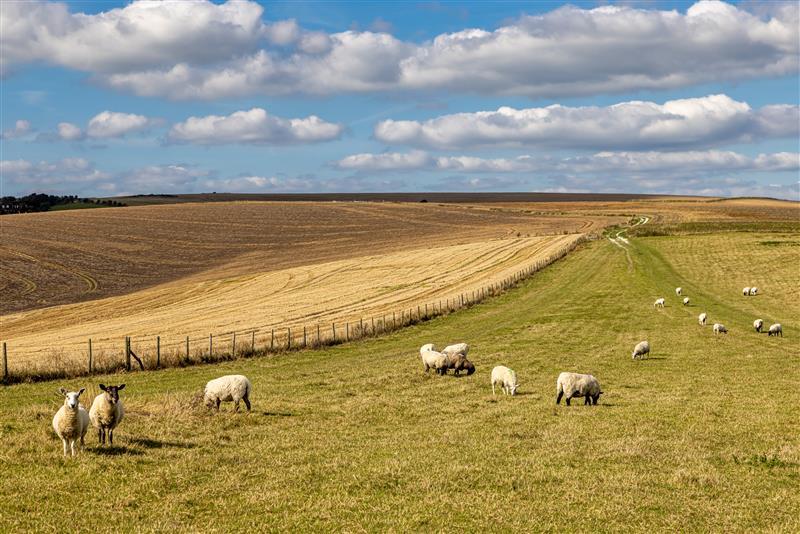
Thank you for continuing to subscribe to our monthly newsletter. We hope you continue to find the content useful and we welcome any feedback or suggestions on topics that you would like to see covered in future editions of the newsletter.
FAS technical advice line: 03000 200 301
- Key dates to be aware of…
- How to contact your local Catchment Sensitive Farming team
- You can contact your local CSF team for help and guidance on more than just funding support.
- How a Somerset dairy farm tackled challenges with slurry storage and silage clamp issues
- At this Somerset dairy farm, a routine Environment Agency (EA) inspection identified issues with the farm’s silage clamps and the slurry storage
- An update on Countryside Stewardship Higher Tier (CSHT) and the Farming and Countryside Programme’s (FCP) annual report
- In this announcement, Defra stated: “Publishing the report lets farmers, stakeholders, and the public see clearly how funding and policies are being used to support farms, the environment, and sustainable food production.
- Celebrating Young Farmers Week 6-10 October
- National Young Farmers’ week is a five-day campaign that runs from 6-10 October 2025. It’s a positive way to promote what Young Farmers do to a much wider audience and creates new opportunities for YFC members.
- New restrictions for burning on all England upland peat deeper than 30cm, unless subject to a license
- On 9 September, Defra announced new restrictions for burning on all England upland peat deeper than 30cm, unless subject to a licence. The restrictions will come into force on 30 September 2025.
- £12 million to turn brilliant ideas into farm technology
- Defra recently announced over £12 million in two new Farming Innovation Programme (FIP) grants to back ideas and develop the technology that tackles everyday challenges for thousands of farmers in England.
- Improved TB mapping tool ibTB gives farmers more certainty about disease risks when purchasing cattle
- ibTB is a free interactive map which helps cattle farmers and their vets understand bovine TB levels in their area and manage the risks when purchasing cattle.
- Innovate UK BridgeAI: free in-person workshops and online webinars
- Join a series of free workshops designed to introduce AI and machine learning tools that support more efficient operations, improved forecasting, and data-driven decision-making in the agri-food sector.
- Updates from the Defra Farming blog and industry announcements
- New Commissioner to champion tenant farmers across England
- UK and Brazil show global leadership on fertilisers sustainability
- RPA blog - Sustainable Farming Incentive (SFI) Expanded Offer for 2024: understanding the rotational actions declaration
- FETF grant funding update
- Changes to fallen cattle collections form - BSE testing
- Catch up on Defra webinars
- Stay up to date with us
- How can we help you?
New restrictions for burning on all upland peat deeper than 30cm come into force. From this date, anyone wishing to burn heather, grass and other vegetation on upland peat deeper than 30cm will require a license.
GOV.UK
For any land located in a Nitrate Vulnerable Zone (NVZ), this is the start of closed period for applying organic manure with a high readily available nitrogen content (for example, slurry, poultry manures or liquid digested sewage sludge) to tillage land on soils which are not shallow or sandy. GOV.UK
You can burn heather, rough grass, bracken, gorse or vaccinium on land in upland areas (not including peat deeper than 30 cm) from this date. GOV.UK
For any land located in a Nitrate Vulnerable Zone (NVZ), this is the start of the closed period for applying organic manure with a high readily available nitrogen content (for example, slurry, poultry manures or liquid digested sewage sludge) to grassland on soils which are not shallow or sandy. GOV.UK
In case you missed them
For any land located in an NVZ, this is the start of the closed period for applying manufactured nitrogen fertilisers to tillage land. GOV.UK
For any land located in an NVZ, this is the start of the closed period for applying manufactured nitrogen fertilisers to grassland. GOV.UK
For any land located in an NVZ, this is the start of the closed period for applying organic manure with a high readily available nitrogen content (for example, slurry, poultry manures or liquid digested sewage sludge) to tillage land on shallow or sandy soils that have been sown with crops on or before 15 September. GOV.UK
For more details about the information provided in the key dates table, visit the Rules for Farmers and Land Managers and the relevant pages of GOV.UK.
You can contact your local CSF team for help and guidance on more than just funding support. They can help with advice on:
- Nutrient, slurry and manure management
- Soil health
- Pesticide handling
- Natural flood management
- Reducing ammonia emissions
- Sustainable water use

You can ask Catchment Sensitive Farming for advice by sending a completed CSF Advice Request Form to your local team.
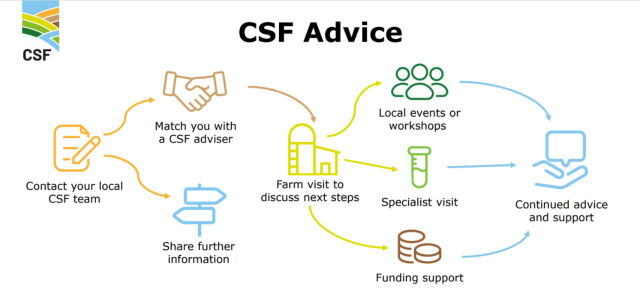
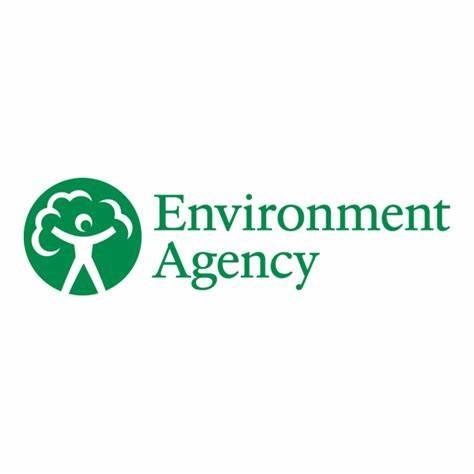
At this Somerset dairy farm, a routine Environment Agency (EA) inspection identified issues with the farm’s silage clamps and the slurry storage:
• The silage clamps were found to have insufficient perimeter drainage and effluent storage.
• The slurry store only had around one month of storage capacity.
The farm did not initially progress the works to address the issues with the silage clamps voluntarily, so a silage, slurry and agricultural fuel oil (SSAFO) notice was served requiring the installation of impermeable perimeter drainage channels, with a compliant facility to store the silage effluent in. Following this, the farm took the necessary steps to comply with the notice, meaning that silage effluent is now flowing along the channels and being safely collected and stored. The EA Officer was subsequently able to confirm that the farm’s clamps are compliant with silage, slurry and agricultural fuel oil (SSAFO) Regulations.
To address the issue with the slurry storage, the farm applied for planning permission for a new, larger slurry store. When this planning application seemed to have lost momentum (despite providing the documentation requested by the planning department), the farmer informed their local EA Officer, who supported moving this forward and ensuring it was processed. The farm also employed a qualified specialist to help design the new store and to take soil samples at the proposed site, with samples sent to a laboratory to check that the clay content was sufficiently impermeable.
The improvements to the slurry store have brought the farm into compliance with the SSAFO regulations. In addition, the farm will be in a better position to be compliant with the Farming Rules for Water requirement to only spread fertilisers, including slurry, according to crop and soil need.
As well as increasing their compliance levels, the upgrades made also have a financial benefit to the farm, as they are now spending less money on artificial fertiliser.
On Back British Farming Day (10 September), Secretary of State Emma Reynolds attended the NFU reception in her first week in office to meet with stakeholders and reaffirm her commitment to farmers and land managers.
To mark Back British Farming Day, Defra also published the Farming and Countryside Programme’s (FCP) annual report. It sets out how funding has been allocated the past year and the progress made with Environmental Land Management schemes.
In this announcement, Defra stated: “Publishing the report lets farmers, stakeholders, and the public see clearly how funding and policies are being used to support farms, the environment, and sustainable food production.
£2.6 billion was committed to supporting farming over 2024/2025. The full amount has been spent. This includes the £1.39 billion for Environmental Land Management schemes – helping farms across England to be more sustainable, profitable and resilient for the future.”
Read the full FCP annual report on GOV.UK.
Alongside the report, Defra also published the Countryside Stewardship Higher Tier (CSHT) scheme guidance, Terms & Conditions, and actions on the “Find funding for land or farms tool” on GOV.UK. The scheme opened on 18th September for applications from farmers, foresters and land managers who have been invited and who have completed the pre-application process.
Visit the CSHT GOV.UK page for all the information needed to apply.
“This marks a major milestone in delivering the new CSHT, ensuring farmers are rewarded for their vital role in sustainable food production and nature recovery.”
CSHT is backed by the Government's £11.8 billion allocation to deliver sustainable farming and food production over this parliament. Funding for farmers through the Environmental Land Management schemes such as CSHT will increase by 150 per cent to £2 billion by 2029.
You can read more detail on the announcements on the Defra Farming Blog.
National Young Farmers’ week is a five-day campaign that runs from 6-10 October 2025. It’s a positive way to promote what Young Farmers do to a much wider audience and creates new opportunities for Young Farmers Club (YFC) members. In 2025, they are promoting how YFC Makes a Difference.
The aim of the campaign is to raise awareness of YFCs and the great work they do and to encourage more young people to get involved in their local club.
- Promote the positive impact YFCs make in their rural communities.
- Encourage membership recruitment and retention.
- Unite members as part of a nationwide community of YFCs.
Full information on the weeks plans and how to get involved can be found on the website here; National Young Farmers' Week


On 9 September, Defra announced new restrictions for burning on all England upland peat deeper than 30cm, unless subject to a licence. The restrictions will come into force on 30 September 2025.
80% of England's peatlands are degraded, with rotational burning contributing to their decline in upland areas. Protecting England’s peatlands from unnecessary burning is essential to its restoration and recovery. These restrictions will help to protect wildlife, store carbon and restore nature.
The burning ban on deep peat is being extended from 30 September. This now covers peat deeper than 30cm (previously 40cm) in Less Favoured Areas - tripling the protected area to 676,628 hectares.
You can still apply for burning licences under four specific circumstances:
- conserving natural or historic environments,
- public safety,
- reducing wildfire risk, or
- research/education purposes.
The licencing system has been refined to balance environmental protection with practical land management needs
The changes follow a consultation on measures announced earlier this year; you can read Defra’s Consultation Response here.
To find out more, please see Defra’s Press Release and guidance on how to apply for a heather and grass burning licence.
If you have further questions, you can email heatherandgrassburning@defra.gov.uk.
Defra recently announced over £12 million in two new Farming Innovation Programme (FIP) grants to back ideas and develop the technology that tackles everyday challenges for thousands of farmers in England.
- On 15 September, applications opened for the Small R&D Partnerships competition (Round 4) with up to £7.8 million to bring new agricultural technology onto the market.
- And from 13 October, applications will open for the Feasibility Studies competition (Round 4) with up to £4.8 million for developing early ideas.
This previously funded the development of Hoofcount – bringing a camera system to market that spots early signs of lameness in cattle. Since 30% of dairy cows can suffer from lameness at any time, this early warning system saves farms money whilst strengthening animal welfare.
These inventions aim to deliver real results for ordinary farmers, cutting costs and boosting profits.
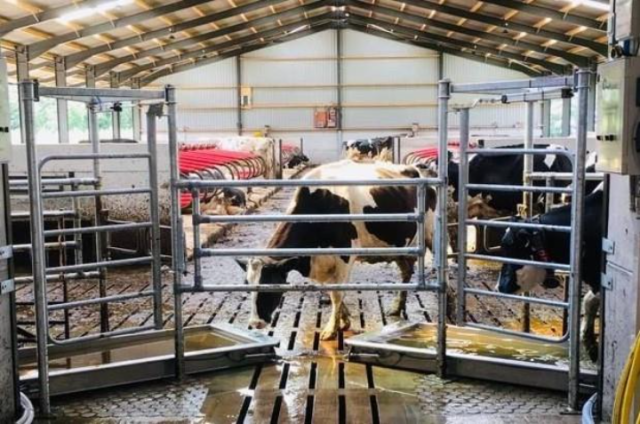
This forms part of the Government’s commitment to spend at least £200 million on agricultural innovation up to 2030 — solidifying Britain as a global leader in Agri-Tech and driving growth across rural communities.
Find out more in this Defra Farming Blog post.
To be the first to receive the latest updates on new funding available for farmers, subscribe to the Defra Farming Blog here.
For information on funding available to farmers in England, and the status of a range of funding grants and schemes, visit the GOV.UK ‘Funding for farmers, growers and land managers’ webpage.
Movements of cattle are a known source of new bTB infections. ibTB is a free interactive map which helps cattle farmers and their vets understand bovine TB levels in their area and manage the risks when purchasing cattle.
Used over 1 million times, ibTB shows the location of bTB breakout and provides information on the TB risk status of all cattle herds in England and Wales.
On 3 September, a new version was launched with a number of specific improvements, the most significant being the addition of animal-level TB risk data. This will give users movement and bTB history for 6 million animals in England. This provides greater information to farmers purchasing cattle, enabling them to make more informed decisions and reduce the risk of inadvertently introducing TB into their herds.
Information available for animals in English herds includes an animal’s date of birth, sex and breed, as well as the date and type of the last TB test. It also includes information about an animal’s current herd, such as its TB risk area (High, Edge, or Low), any TB breakdown history and date, and how long the animal has been in the herd. Where relevant, the same details are also available for the previous herd, ensuring transparency around an animal’s movement history—helping buyers avoid unknowingly sourcing cattle that have recently moved from a higher-risk area.
Find out more about the new update here and access the iBTB mapping tool here. Further information on how to manage purchasing risks can also be found on the TB Hub.
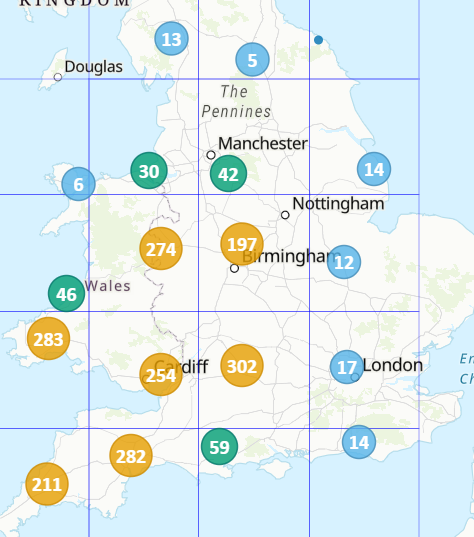

Innovate UK BridgeAI: In-Person Workshops
Join a series of free workshops designed to introduce AI and machine learning tools that support more efficient operations, improved forecasting, and data-driven decision-making in the agri-food sector.
Led by experienced professionals, these sessions offer hands-on learning and a chance to connect with others working in the field. CPD accreditation is available, and lunch will be provided.
Upcoming workshops:
- Kent – 14 October
- Herefordshire – 18 November
Innovate UK BridgeAI: Lunchtime Webinars
The BridgeAI webinar series, held on the first Wednesday of each month, explores how AI can be applied in agri-food contexts.
Each session focuses on a different topic, with practical examples and optional reading materials to support continued learning. CPD-approved content is available for those looking to deepen their understanding at their own pace.

Defra regularly updates the Farming blog. Please subscribe to the blog to ensure you receive all the latest news.
New Commissioner to champion tenant farmers across England
Government is reaffirming its commitment to the tenant farming sector, appointing England’s first Commissioner for the Tenant Farming Sector, Alan Laidlaw.
With over a third of all farmland in England managed by tenants, the Commissioner will ensure fair practice across the sector and enable tenanted farm businesses to thrive.
The Commissioner will act as a trusted and impartial point of contact for tenants, landlords and advisors, tackling poor behaviour across the sector, improving collaboration, investigating complaints, and providing a confidential point of contact.
This appointment delivers on a key government commitment to support hard-working tenant farmers that play a pivotal role in producing food and protecting nature.
The Commissioner will promote the standards set out in the Agricultural Landlord and Tenant Code of Practice, working closely with Defra and the Farm Tenancy Forum, the government–industry group that advises Defra on supporting and improving the farm tenancy sector in England.
Last week, Alan visited NFU Deputy President and tenant farmer David Exwood’s farm alongside Environment Secretary, Emma Reynolds. They saw firsthand the opportunities facing tenant farmers, speaking with representatives from the Tenant Farmers Association (TFA), Country Land and Business Association (CLA), National Farmers’ Union (NFU) and Nature Friendly Farming Network (NFFN).
Speaking on his appointment, Commissioner for the Tenant Farming Sector Alan Laidlaw said:
“I am honoured to be appointed as England’s first Commissioner for the tenant farming sector, supporting this vital sector with the fair framework it needs to thrive.
Having worked across farming, land management and the rural economy, I know how strong tenant-landlord relationships can drive innovation, resilience and shared success.
I look forward to working with farmers, landlords and advisors to promote best practice, address challenges, and help build a fair, profitable and sustainable future for tenant farming in England.”
You can read more from Alan in his post on the Defra Farming Blog.
Changes to fallen cattle collections form - BSE testing
When cattle over 48 months old die on your farm, they're collected and tested for BSE (Bovine Spongiform Encephalopathy) - sometimes called 'mad cow disease' - an incurable and fatal brain disease in cattle. This testing helps keep our food supply safe.
What's changed?
From March 2025, when your dead cattle are collected, collection sites will ask you to provide additional information. They need to say whether the animal showed any of the following signs:
- Changes in behaviour
- Sensitivity to touch or sound
- Problems with coordination
- Other neurological symptoms
These changes have been introduced following recommendations from the World Organisation of Animal Health (WOAH). The updates aim to improve BSE testing accuracy and help maintain strong surveillance. There is now a new FSCA2 form for keepers to use (the form used when cattle are collected for testing).
All collection sites now use the updated forms to collect this additional information. Sites must record all clinical signs when they collect the eligible animal for disposal and TSE testing.
Livestock keepers must legally report suspected disease for any animal in their care to APHA. Keepers should watch out for clinical signs of the disease. Read more about how to spot and report BSE.
RPA blog - Sustainable Farming Incentive (SFI) Expanded Offer for 2024: understanding the rotational actions declaration
For those with a 2024 Sustainable Farming Incentive (SFI) agreement, there are some actions in the SFI 2024 which are ‘rotational’ and for agreement holders with this type of agreement you will need to complete a Rotational Annual Declaration after you have submitted the Annual Declaration. Full guidance can be found on the RPA Blog post.
UK and Brazil show global leadership on fertilisers sustainability
A historic partnership to tackle the environmental impact and embrace the economic opportunities of fertilisers has been launched today by the United Kingdom and Brazil.
Signed by UK Special Representative for Nature, Ruth Davis and Brazilian Deputy Agricultural Minister Cleber Oliveira Soares, the memorandum of understanding seeks ways to make fertiliser production more sustainable and efficient.
It includes increased collaboration on research and innovation, boosting supply chain resilience and sharing best practice.
This partnership comes as part of efforts to drive greater global co-operation of sustainable fertiliser production and use, showcasing the UK’s and Brazil’s global environmental leadership ahead of COP30 – where plans to boost the cooperation of governments and international organisations on fertilisers will be emphasised.
For more information on the memorandum, please visit GOV.UK.
FETF Grant Funding Update
Defra has issued an announcement that they have begun to issue grant funding agreements (GFAs) to successful applicants under the productivity and slurry themes of the latest round of the Farming Equipment and Technology Fund (FETF).
If your application is successful, you will soon receive an email with your GFA.
Responses to applications under the animal health and welfare theme will follow later, as the high volume of applications means assessment will take longer. Read more about the announcement and next steps for agreement holders here.
Catch up on Defra webinars
Get Funding for Animal Health and Welfare
In July and August, Defra hosted webinars for livestock farmers explaining how they can access funding for an Animal Health and Welfare Review and follow-up vet visit for endemic diseases.
Watch the records of webinars for cattle, sheep and pig farmers below:
Further details of the Animal Health and Welfare Review can be found here.
Rural Payments Agency Blog
To stay up to date with the latest information and updates from the Rural Payments Agency (RPA), sign up to the RPA Blog. You can also listen to the RPA Podcast, which has been launched to help farmers, landowners and rural communities keep up to date with the latest news from the RPA. You can also follow the RPA on social media:
- X @ruralpay
- Facebook: facebook.com/RuralPaymentsAgency
- YouTube: Rural Payments Agency
- Instagram: ruralpay.
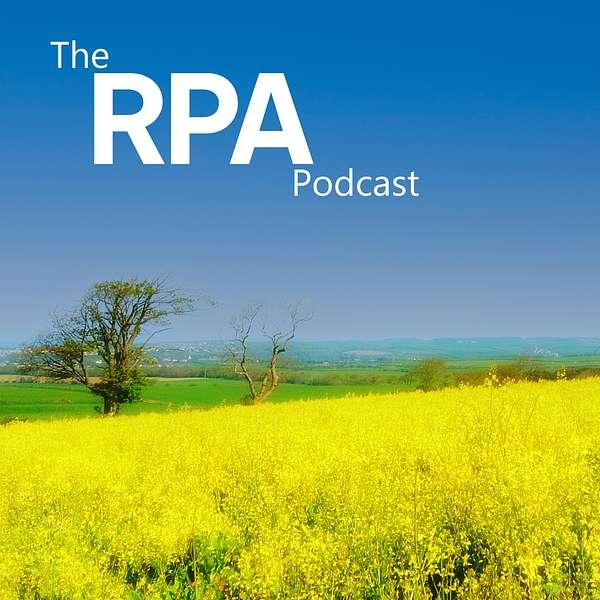
Stay up to date with us
Subscribe to our free monthly newsletter
If you don’t already receive our monthly FAS newsletter, please visit farmingadviceservice.org.uk/signup and enter your email address into the newsletter sign-up box.
In line with data protection regulations, such as the General Data Protection Regulation (GDPR) and the UK Data Protection Act 2018, the FAS has updated its privacy policy to explain how your data is kept safe. To view the policy, please visit www.farmingadviceservice.org.uk/events/privacy/.

Free and confidential advice
The FAS is funded by the Department for Environment, Food and Rural Affairs (Defra). We provide free, confidential advice to help farmers and land managers in England understand and meet the legal requirements in English law around certain farming activities to protect people, livestock and the environment. We update the farming sector on relevant government farming policy that is applicable in England and on the actions that can be taken to help farmers comply with the relevant regulations. Our newsletter also provides articles on topics that are complementary to farming regulation, such as practices that benefit the wider environment and wellbeing support.
Our website hosts our previous newsletters, as well as technical articles and webinars that cover various topics in more detail.
Contacting the advice line: Farmers requiring telephone advice can contact the FAS technical advice line on 03000 200 301, Monday to Friday, between 08:30 and 17:00. The Rural Services Helpline provides a single number for all FAS, Rural Payments Agency (RPA), Animal and Plant Health Agency, Natural England and Forestry enquiries.
You can also email enquiries to advice@farmingadviceservice.org.uk. Our helpline team aims to respond to all telephone and email enquiries within one working day.
